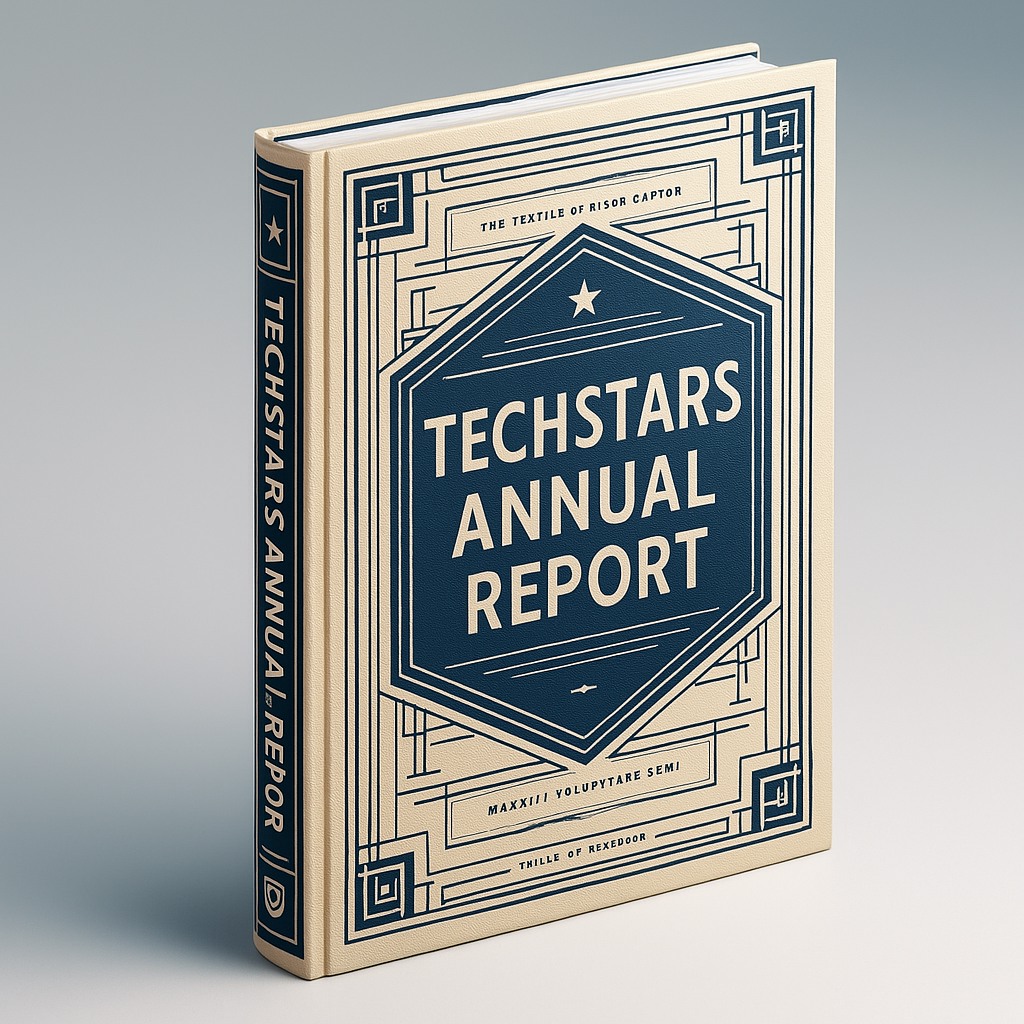Techstars Annual Report
The article explores the evolving trends in venture capital (VC) for 2023, highlighting significant shifts in investment strategies, emerging sectors, and market dynamics. One of the most prominent trends is the growing emphasis on sustainable technologies, with VC investments in this sector increasing by 25%. This surge reflects a broader shift towards environmentally focused startups, as investors recognize the long-term potential of clean energy, circular economy solutions, and climate tech innovations. The increasing regulatory push for sustainability and consumer demand for green solutions further reinforce this trend.,Another key area of focus is health tech, which has experienced a 30% rise in VC funding in 2023. This growth is primarily driven by advancements in telemedicine, digital health platforms, and biotech innovations, as healthcare systems worldwide continue to integrate technology to improve patient outcomes and accessibility. Investors are particularly interested in AI-driven diagnostics, personalized medicine, and remote healthcare solutions, all of which have gained traction in the post-pandemic era.,However, market dynamics have also shifted, with early-stage funding witnessing a 15% decline due to increased risk aversion among investors. Economic uncertainties and a tighter financial landscape have led VCs to prioritize later-stage investments, focusing on startups with proven traction, established business models, and clear paths to profitability. This trend signifies a more cautious approach, where investors seek to mitigate risks by backing companies that have already demonstrated market viability rather than taking bets on early-stage, high-risk ventures.,Overall, the VC landscape in 2023 is characterized by a strategic reallocation of capital, with greater emphasis on sustainable innovation and health tech, alongside a shift towards later-stage investments amid heightened market uncertainties. These evolving trends underscore how venture capital continues to adapt to global economic conditions, technological advancements, and shifting investor priorities.,
Why is relevant?
These insights highlight the current shifts in venture capital (VC) strategies and sector focuses, providing critical guidance for investors looking to adapt their portfolios to emerging trends and high-growth sectors. The 25% increase in investments in sustainable technologies signals a strong market shift toward environmentally responsible innovation, driven by regulatory pressures, government incentives, and rising consumer demand for clean energy, climate tech, and circular economy solutions. Investors are increasingly drawn to startups focusing on carbon capture, sustainable agriculture, electric mobility, and waste reduction technologies, recognizing both their financial potential and their role in addressing global climate challenges.,Similarly, the 30% surge in health tech funding underscores the growing importance of telemedicine, biotech advancements, and AI-driven healthcare solutions. The healthcare sector continues to evolve rapidly, fueled by digital transformation, data-driven diagnostics, and the expansion of remote patient care services. With an aging population and increased healthcare demands worldwide, VCs are increasingly backing companies that offer innovative, scalable solutions for medical treatments, patient monitoring, and personalized medicine. The integration of AI, blockchain, and wearable technology in healthcare is further shaping investment opportunities, making this sector a priority for long-term growth.,However, while certain sectors are experiencing an influx of capital, the 15% decline in early-stage funding reflects a broader shift in investor sentiment toward risk mitigation and financial sustainability. As market uncertainties persist, VCs are prioritizing later-stage startups that have demonstrated traction, revenue generation, and clear scalability paths. This shift indicates that investors are becoming more selective, favoring proven business models over speculative early-stage ventures. The decline in seed and Series A funding presents both challenges and opportunities—while early-stage startups may face difficulties in securing capital, those with strong product-market fit and efficient operational models will stand out in an increasingly competitive funding landscape.,Beyond sector-specific trends, geographical diversification is becoming a key strategy for VCs looking to tap into emerging markets with high growth potential. Investment in startups across Asia, Africa, and Latin America is on the rise, driven by increasing digital adoption, expanding middle-class populations, and improved startup ecosystems. Governments in these regions are also offering tax incentives, regulatory support, and innovation grants to attract foreign investment, making them attractive destinations for VCs seeking to diversify risk and access untapped markets.,In addition to shifting sectoral and geographical preferences, the growing role of corporate venture capital (CVC) is reshaping the investment landscape. Large corporations are increasing their participation in VC funding, seeking to leverage startup innovation for strategic growth. This trend has led to more collaborative investment models, where traditional VCs, corporate investors, and government-backed funds work together to support startups that align with industry needs and long-term technological advancements.,By recognizing these shifting market trends, investors can adjust their portfolios to reflect the increasing importance of sustainability, healthcare innovation, geographic diversification, and risk-aware investment strategies. The evolving VC landscape demands a more data-driven, strategic approach, where investors must balance growth potential, regulatory dynamics, and financial resilience to maximize returns. Staying informed about these developments is crucial for navigating uncertainties, capitalizing on emerging opportunities, and positioning for long-term success in an increasingly dynamic global investment environment.,

Author
Eze Vidra
Publication date
February 27th, 2023
Difficulty
Intermediate
Keywords
- Venture Capital
- Investment Trends
- Sustainable Technologies
- Health Tech
- Market Dynamics
Last update